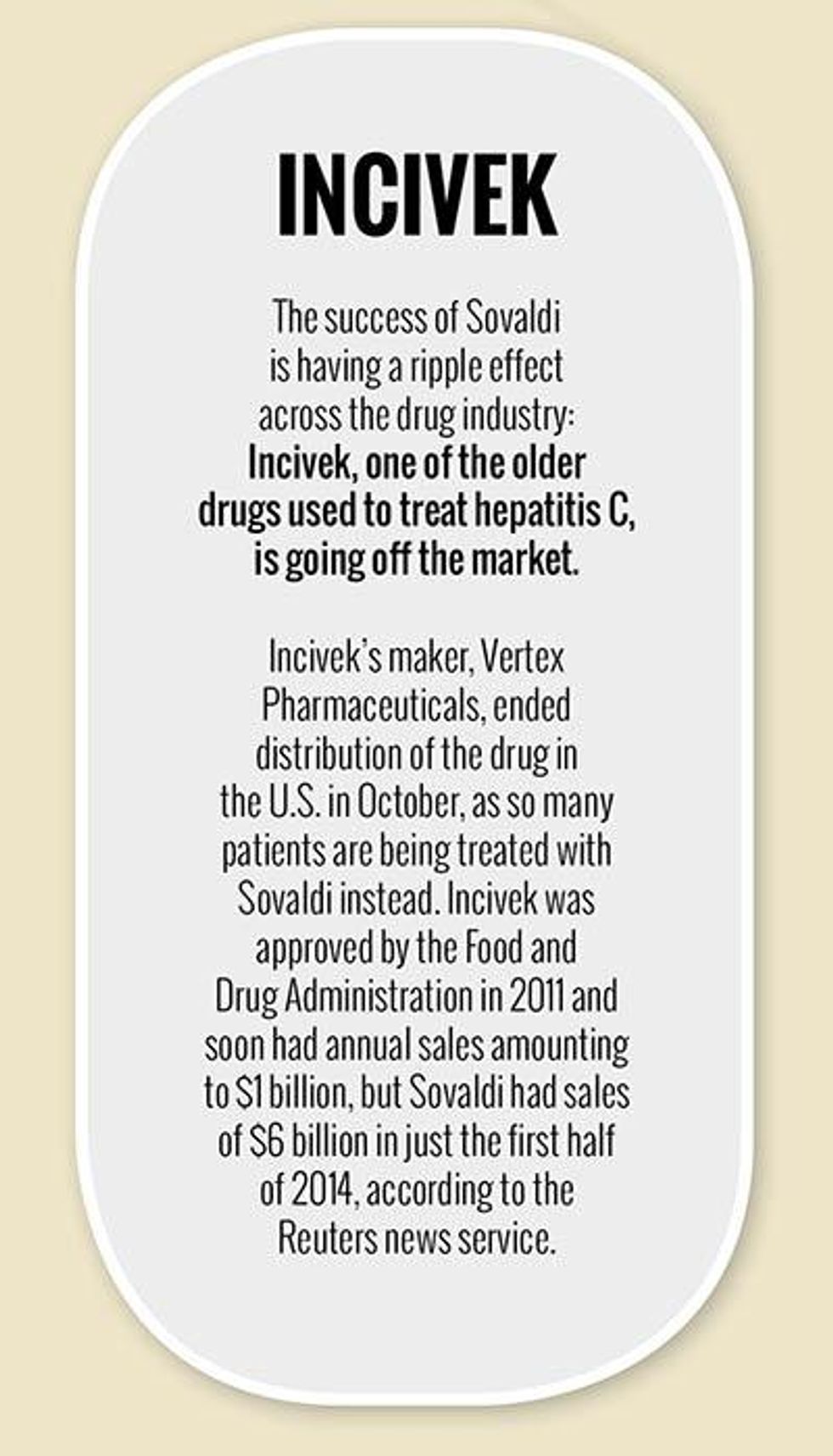
New drugs are being hailed as a cure for the hepatitis C virus, a common coinfection with HIV. What does this mean for you?
November 03 2014 3:00 AM EST
May 26 2023 2:14 PM EST
By continuing to use our site, you agree to our Private Policy and Terms of Use.

Sovaldi, approved last year for the treatment of hepatitis C—a common and potentially serious coinfection in people with HIV—is being called a breakthrough cure for the liver disorder, albeit an expensive one, and treatments touted as even more potent are in the pipeline.
The Gilead Sciences medication, taken as part of a drug cocktail, has managed to clear the hepatitis C virus, or HCV, in about 90 percent of cases in only about 12 weeks, according to several studies, whereas the best previously available drugs only had a 65 to 75 percent cure rate. And this has been with few side effects, usually just mild headache and fatigue.
“The word is cure. To me, the cure of hep C is one of the most significant medical developments of the last 50 years,” Greg Everson, a physician at the University of Colorado Hospital, which has been the site of several trials, told The Denver Post. “We’ve been able to cure hep C since the early 1990s, but the older drug combinations had a much lower success rate. Sovaldi is the new backbone therapy.”
Another HCV drug approved by the FDA in 2013, Janssen Research and Development’s Olysio, has shown good results too, and scientists are now testing a combination of the two, which may be even more effective, as well as other promising drugs.
For instance, a clinical trial of Sovaldi combined with ledipasvir, another drug developed by Gilead, showed nearly a 100 percent cure rate, The New England Journal of Medicine reported earlier this year. Gilead has applied for FDA approval of the combo. The Sovaldi-Olysio combination, also awaiting FDA approval but already being prescribed off-label by some doctors, has produced cure rates upward of 90 percent in trials.
HCV is present in an estimated one-quarter of all people with HIV and more than half of HIV-infected injection drug users. If left untreated, it can produce life-threatening complications. “It’s a devastating disease,” Everson told the Post. “It can smolder for years without symptoms, then it destroys the liver—cirrhosis, cancer.”
Sovaldi (generic name sofosbuvir) and Olysio (simeprevir), like previously available HCV drugs, are usually administered with another antiviral drug, Rebetol (ribivarin), and injections of interferon, a lab-produced copy of a natural protein that aids the immune system. Sovaldi can be used without the interferon injections in some cases, making for an all-pill regimen and avoiding the substantial side effects often associated with interferon. A study presented at this summer’s International AIDS Conference showed the interferon-free regimen to be effective against HCV in more than 80 percent of patients who also have HIV, although the combo of Sovaldi and ledipasvir, also without interferon, has produced more spectacular results.
But cost is a major consideration. Sovaldi costs $1,000 a pill, and some insurers have been reluctant to cover it. (Gilead offers a patient assistance program to help with the cost.) An activist group, the National Coalition on Health Care, has objected to the price, and members of Congress have initiated an investigation into how Gilead arrived at it.
“Clearly, $1,000 a pill strikes people as completely unreasonable,” coalition president John Rother recently told The New York Times. Gilead, he said, “stepped in it when they decided to go for that cost per pill, because people can’t imagine why that could be justified.”
Some doctors and business analysts predict that as more HCV drugs are developed, competition will bring prices down, and that competition is heating up.
Bristol-Myers Squibb, AbbVie, and Merck, through its recently announced acquisition of Idenix Pharmaceuticals, are all working on HCV drugs too.
Another important consideration is identifying more people who can benefit from HCV treatment. Those with HIV should be routinely tested, and the Centers for Disease Control and Prevention recommends testing for all people in the baby boom generation, born between 1945 and 1965. The CDC estimates 3 million to 4 million Americans carry the hep C virus and don’t know it.
The strategy of testing baby boomers “will really home in on those who are at greatest risk of disease,” said Harvard Medical School professor Raymond Chung, MD, in an interview with a Harvard blog. “If fully implemented, it might be able to identify another million people previously undiagnosed with hepatitis C.”